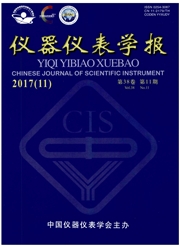

 中文摘要:
中文摘要:
矿产行业是关于国民经济发展的支柱行业,井下机车信息的实时获取和处理离不开无线通信的方式。针对于井下大巷的一维线性特征和井下机车的可安排调度特征,提出了面向矿井机车的干扰管理移动网络通信及调度策略。首先建立了井下移动网络调度模型,该模型为非线性规划模型,无法直接求解。随后通过理论推导发现机车通信信噪比和机车运行速度、机车数据发送功率之间的关系,以及轨旁AP的覆盖范围和同时可接入机车数量之间的关系,并基于此设计了可自修正的干扰管理移动网络通信及调度策略,使得机车总通过时间和轨旁AP的布置达到整体最优。仿真结果显示该通信调度策略优化效果较之不采用干扰管理的井下移动网络有较大改进,其改进率在30%~80%,且工作的时间越长,调度的车辆越多,总改进效果越好。
 英文摘要:
英文摘要:
Mining industry is the pillar industry for the national economic development. The real-time information's acquisition and processing should be based on wireless communication. Since underground roadway has one-dimensional linear features and the mining locomotives can be scheduled,a scheduling strategy for the mine locomotive wireless mobile networks based on interference management is proposed. Firstly,the mobile wireless network scheduling model is proposed. This model is a non-linear programming model which can not be solved directly. Then based on the theoretical derivation,the relationship between the signal-noise ratio and the locomotive speed,between the signal-noise ratio and the locomotive transmitting power,and between the coverage of the access point and the number of the locomotives which can be connected with the AP simultaneously are found. Based on these relationships,a self-correction algorithm for the interference management mobile network scheduling model is designed. This algorithm can optimize the total scheduling time length and number of access points together. Simulations show that the optimization effect of the communication scheduling strategy is better than that of the underground mobile network without interference management,and the improvement rate is 30% ~ 80%. Moreover,with the scheduling time becoming longer,the number of scheduling locomotives becoming bigger,the total optimization results will become better.
 同期刊论文项目
同期刊论文项目
 同项目期刊论文
同项目期刊论文
 期刊信息
期刊信息
